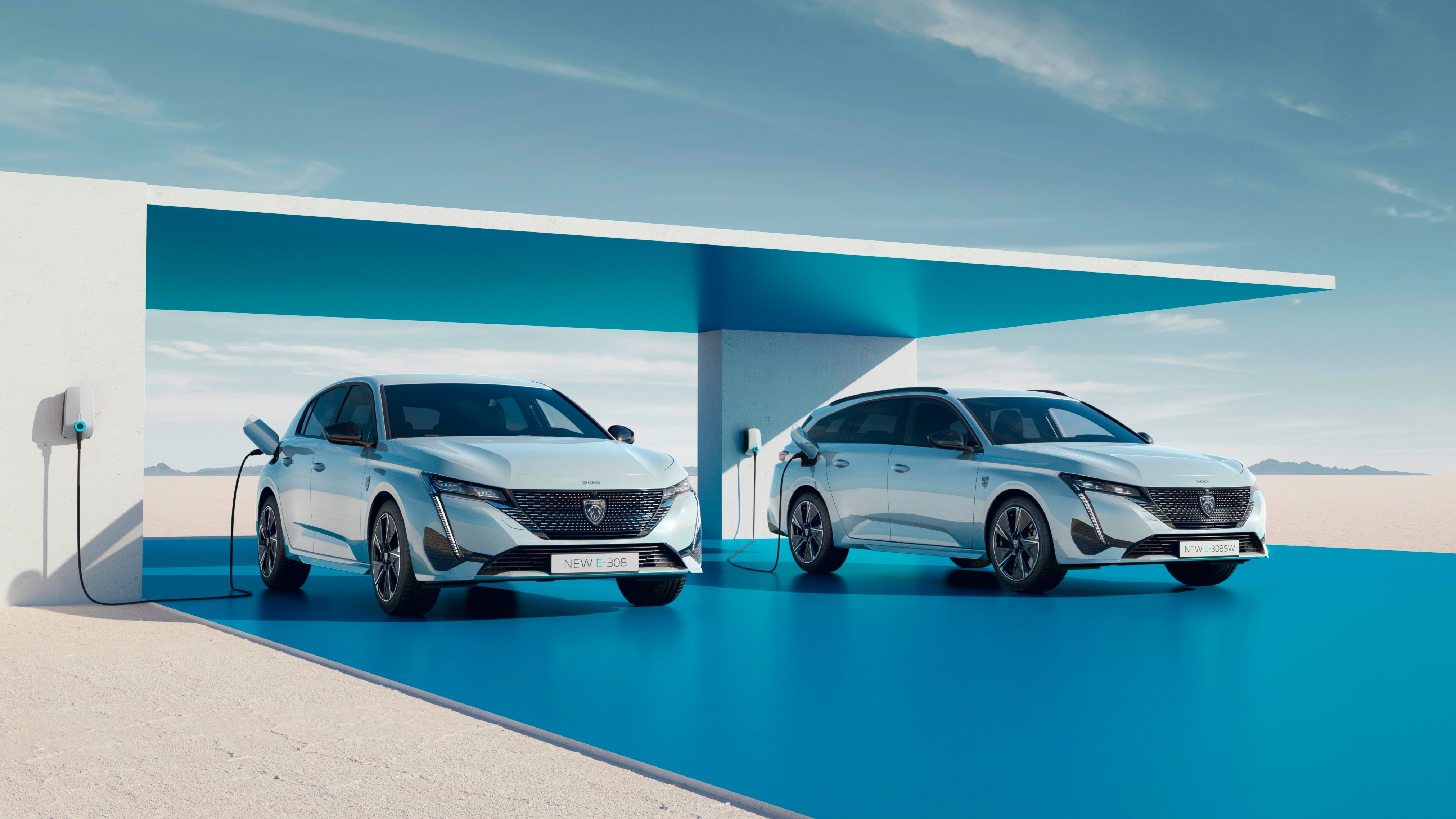Peugeot will present the Electric variant of the 308 in the middle of next year, in the traditionally more complete equipment levels of the French brand, that is, Allure (more sophisticated) and GT (sportier). This reinforcement of the offer extends to the two bodies, sedan and SW, thus allowing the lion brand to be the first among European manufacturers to offer a 100% electric van. And the engine is also new.
Until Stellantis launches the three new platforms that it is preparing specifically for battery-powered models, the group’s brands will have to continue betting on so-called multi-energy platforms, that is, architectures originally designed to receive combustion engines and later adapted to house electric motors. and batteries, which does not favor the efficiency of BEVs. To circumvent this limitation, the EMP2 platform on which the 308 is based has been optimized in terms of weight and will receive a new “new generation” battery-powered motoraccording to Peugeot. Both the e-308 and e-308 SW will have a “all-new electric motor” delivering 115 kW (156 hp) and 260 Nm of torqueand the energy that drives them is now stored in an accumulator with a new chemical composition (80% nickel, 10% manganese and 10% cobalt), operating at 400 volts and with a gross capacity of 54 kWh (51 kWh useful)likely to go from 20% to 80% charge in less than 25 minutes, at a DC charging station at 100 kW. Depending on the level of equipment and the silhouette of the 308, car or van, The autonomy is expected to exceed 400 km..
This is a figure that is still subject to approval, although the brand already points to an average consumption of 12.7kWh/100km. This is not only a very respectable value, but also that stands out more positively considering the current offer. To give you an idea, this is a better figure than the small Fiat 500e (13.0 kWh/100 km) and Peugeot e-208 (15.5 kWh/100 km). With this consumption, the new e-308 clearly leads the field of BEV efficiency, regardless of its size or power, positioning itself ahead of well-known models among us, such as the Hyundai Ioniq (13.8 kWh/100 km), the Volkswagen ID.3 (15.4), the Renault Zoe (17.2) and the Nissan Leaf (17.1). The very recent Mégane E-Tech electric, for example, announces 15.8 kWh/100 km.
According to Peugeot, efficiency guided the work of the engineering team that developed the new e-308 and e-308 SW, with technicians not only to lose weight but also to improve aerodynamics, although the brand does not advance numbers in this regard. The announced low consumption is also explained in the selection of tires, with the choice falling on class A tires, to minimize friction losses. And even the new 18-inch wheels on these variants will have taken into account, in their design, the need not to pinch the aerodynamics.
Still without giving clues about the price, the French brand advances that, “depending on the market”, battery-powered versions of the 308 will be sold online.
Source: Observadora
